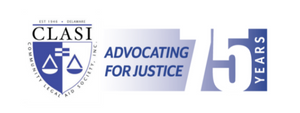More than 600,000 inmates with disabilities in prisons across the country spend more time in prison, under harsher conditions, than inmates without disabilities, according to research. Today, Amplifying Voices of Prisoners with Disabilities (AVID), a project of Disability Rights Washington, released Making Hard Time Harder: Programmatic Accommodations for Inmates with Disabilities Under the Americans with Disabilities Act. The report outlines lack of accommodations for inmates with disabilities.
“People are sent to prison as punishment, not for punishment,” says Mark Stroh, Executive Director of Disability Rights Washington. “In drafting this report, we have found that inmates with disabilities are often neglected and excluded from programs, rehabilitation, and basic medical care, subjecting them to additional forms of punishment solely due to their disability.”
Report findings include case examples submitted by protection and advocacy agencies (P&As) engaged in prison work in 21 states. Colorado, Washington, and South Carolina all reported cases in which essential mobility devices, such as wheelchairs and walkers, were taken from inmates. One case resulted in an inmate’s inability to access showers or outside yard for almost two years. Idaho and Illinois reported systemic litigation seeking the provision of video phone services for inmates who are deaf or hard of hearing. Alabama reported inmates with intellectual disabilities could not access medical care in a written request, and were therefore unable to receive needed medical attention, prompting federal litigation.
The Disabilities Law Program at the Community Legal Aid Society, the designated P&A for Delaware and a contributor to the report, tells the story of an inmate that was permanently housed in the infirmary due to his multiple sclerosis. Because of this placement, the inmate was unable to participate in prison programming, thereby precluding him from accruing earned time and, in turn, an earlier release date from prison. In response, the P&A filed a federal lawsuit, alleging discrimination under the ADA, which remains ongoing.
From individual assistance to large scale federal litigation, these case summaries demonstrate the breadth and depth of work by P&As in prisons, and demonstrate that despite the passage of the ADA over two decades ago, much state prison work remains to be done.
Report recommendations to address this crisis in our nation’s prisons include:
- Creation of independent corrections ombuds offices at the state level in order to address inmate concerns before they rise to the level of litigation.
- Systemic accessibility reviews by state departments of corrections to identify both physical and programmatic barriers for inmates with disabilities.
- Increased federal funding to the protection and advocacy network for corrections based monitoring and advocacy.
- Increased training for prison ADA coordinators and collaboration between these staff members and the local P&As to address inmate concerns.
The report is available at AVIDprisonproject.org, where original interviews with inmates with disabilities, their family members, and experts on disability issues in correctional settings, can be accessed.
About the AVID Prison Project
AVID is a prison advocacy initiative that focuses on the needs of current and former prisoners with disabilities. The project was developed by Disability Rights Washington and is a collaboration between the National Disability Rights Network (NDRN) and Protection and Advocacy agencies (P&As) in Arizona, Colorado, New York, South Carolina, and Washington, with communication assistance from the P&As in Louisiana and Texas.
